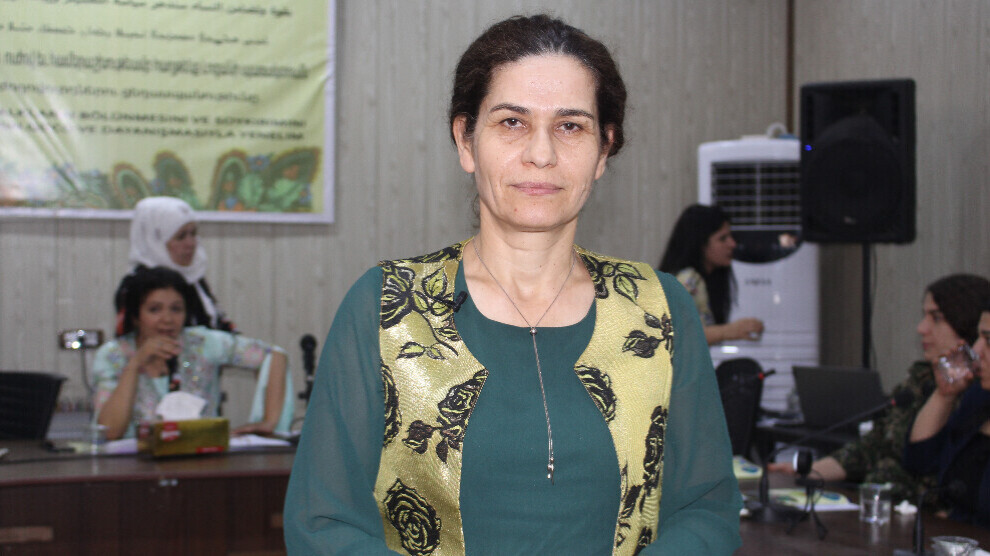Îlham Ehmed: Confederalism can pave the way for the exit from the Treaty of Lausanne
Îlham Ehmed, Co-chair of the Executive Council of the Democratic Union Party, define the Treaty of Lausanne as a genocide against people and beliefs. “Confederalism can pave the way for the exit from the treaty,” she said.

RONÎDA HACÎ
Hasakah- While the 100th anniversary of the Treaty of Lausanne, which divided Kurdistan into four parts, is approaching, the experiences and demands of the Kurdish people have been discussed in many countries. On July 13, a workshop entitled, “The workshop for the Treaty of Lausanne” was held in Hasakah with the participation of 60 women. Women from Middle Eastern countries also attended the workshop online.
‘The treaty is a genocide’
NuJINHA spoke to Îlham Ehmed, Co-chair of the Executive Council of the Democratic Union Party, about the workshop. Emphasizing that the Treaty of Lausanne is a genocide against Kurdish, Arab, Syrian, Armenian and all other women in the region, Îlham Ehmed said:
“After the Treaty of Lausanne was signed, a mentality defending one state, one nation, one flag, one religion emerged. At that time, the Republic of Turkey was founded and the rights of Kurds, Armenians and all other nations were denied. Women suffered a lot from this treaty. The treaty was signed without the participation of any women. The treat was designed and signed by men. The consequences of the treaty mostly affected women. Due to the treaty, Kurdistan was divided into four parts and people were forcibly displaced.”
‘Confederalism is the only solution’
Calling on all women to participate in all resolutions, she said, “Women should hold decision-making positions. Removing the borders of states does not solve any problem. But the confederalism built by people and women from all nations and religions can solve all problems. Confederalism makes the borders of states meaningless. Confederalism can pave the way for the exit from the Treaty of Lausanne. To ensure this, we should reorganize ourselves and be in solidarity with each other.
